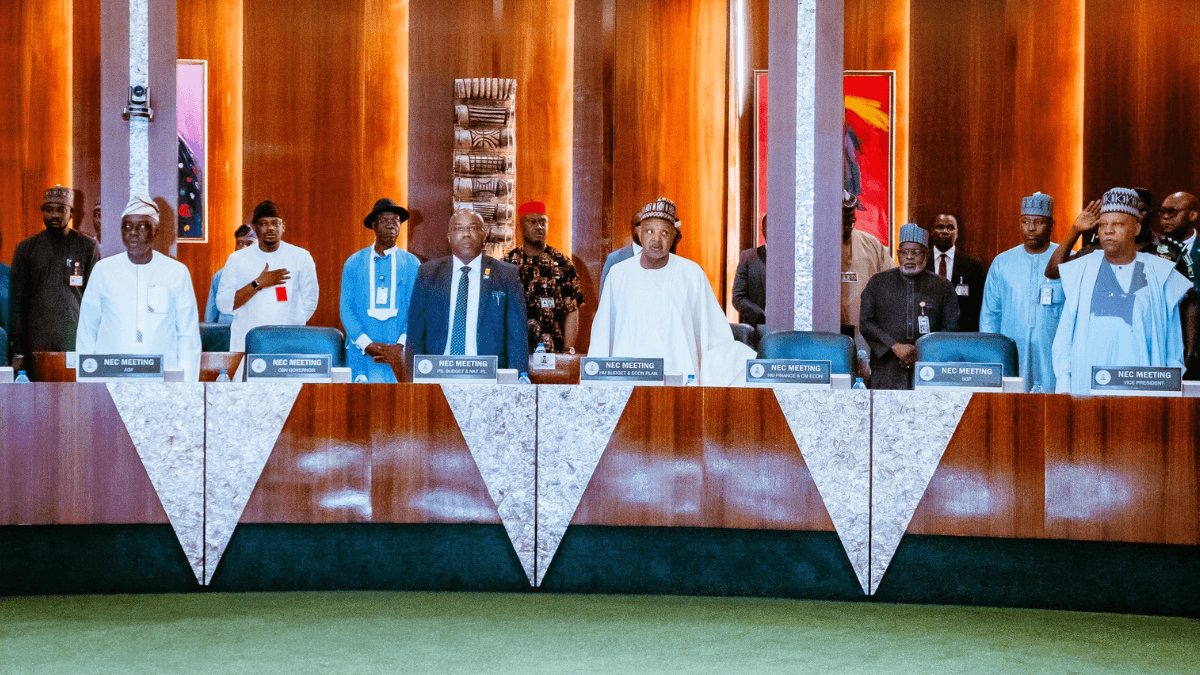News in brief:
– The National Economic Council has approved the new Ministry of Livestock Development’s $90 billion agribusiness and livestock transformation plan.
– A new Cotton, Textile, and Garment Development Board will revive local production and boost exports.
The National Economic Council (NEC) has approved the new Ministry of Livestock Development‘s agribusiness and livestock transformation plan, which is projected to generate up to $90 billion by 2035.
This strategy was approved as part of a set of economic and agricultural reforms during the 149th council’s meeting, which was held on Thursday at the Presidential Villa, Abuja.
The NEC session, presided over by Vice President Kashim Shettima, approved a set of reforms alongside the ministry’s plan. They include creating a Cotton, Textile, and Garment Development Board and establishing a National Office for the Green Imperative Project (GIP) in Abuja with regional offices across the country.
The Ministry of Education’s skill development plan targeting five million Nigerian youths was also part of what they discussed.
State governors, the Governor of the Central Bank of Nigeria (CBN), the Minister of Finance, and other co-opted officials were present at the meeting.
Agribusiness and livestock development plan
NEC endorsed the bold agribusiness and livestock transformation agenda led by the newly created Federal Ministry of Livestock Development (FMLD). The strategy, which builds on the 2018–2028 National Livestock Transformation Plan (NLTP), has been refined to form the National Livestock Growth Acceleration Strategy (NL-GAS).
The plan aims to develop a $74 billion to $90 billion industry by 2035 through collaborations between states, private investors, and international partners. It will prioritise five core pillars in its 2025–2026 rollout:
-
Animal health and zoonotic disease control
-
Feed and fodder development
-
Water resource management
-
Breed improvement
-
Statistics and information systems.
The Council also approved the transfer of the previously allocated ₦100 billion support fund to the new ministry, urged states to create counterpart ministries, and committed to positioning Nigeria as a red meat exporter to Middle Eastern and Asian markets.
Green imperative project and agribusiness policy office
As part of the wider economic reform, NEC approved the establishment of a National Office for the Green Imperative Project (GIP) in Abuja and regional offices across all six geopolitical zones. GIP aims to boost mechanised farming, enhance agricultural productivity, and promote climate-smart farming techniques.
Council also approved the launch of a National Agribusiness Policy Mechanism, expected to guide long-term agricultural planning and investment at all levels.
Textile board to revive local industry
In a bid to revive Nigeria’s once-thriving textile industry, NEC also approved the establishment of a Cotton, Textile and Garment Development Board. The board will be domiciled in the Presidency but driven by the private sector, with funding from the Textile Import Levy collected by the Nigeria Customs Service (NCS).
Membership will include governors representing all six geo-political zones and ministers of key economic ministries such as Agriculture, Budget and Planning, and Trade and Investment.
Vice President Shettima said the initiative aligns with President Bola Tinubu’s economic revival agenda.
“Our goal is not just regulation. It is a revival… to re-industrialise, empower communities, and restore pride in local production,” he stated.
Despite cotton being cultivable in 34 states, Nigeria currently produces only 13,000 metric tonnes and still imports hundreds of millions of dollars’ worth of textiles annually.
“This is not just an economic imbalance. It is an invitation to act,” Shettima added.
He further urged Council members to focus on execution and results. The VP encouraged officials to bridge the gap between policy and impact by prioritising field implementation and inclusive governance.
Skill development plan to reach 5 million youths by 2030
Also at the meeting, the Minister of Education presented plans to equip five million Nigerian youths with entrepreneurial and industry-relevant skills by 2030 through a revamped Technical and Vocational Education Training (TVET) framework.
The Council applauded the initiative and encouraged states to key into the programme, stressing its potential for job creation and youth empowerment across Nigeria.



